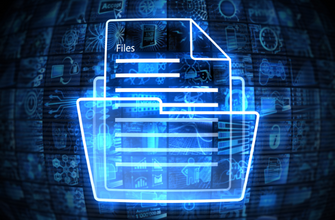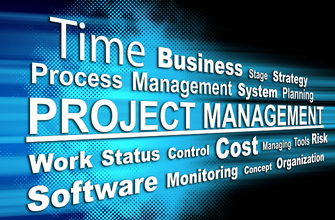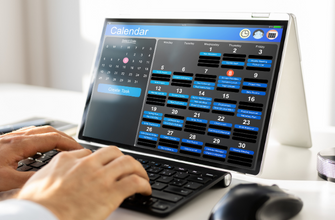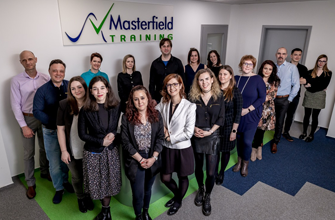Develop the skills to manage and lead software testing effectively. This e-learning presents a comprehensive overview of methods and techniques for deriving and specifying software tests based on the system’s implementation and structure (“white box tests”). On completing the course, attendees will be able to select and apply techniques for test case derivation, such as control flow or data flow testing as well as static and dynamic analysis. We will look at non-functional testing techniques, such as reliability testing, portability testing, performance, load and stress testing. We will also discuss how to succeed in building robust automation architectures and using a variety of tools to reach quality targets.
This certification is aimed at anyone interested in the topic of software testing who has already been working in the sector for a few years and wants to develop their skills further. If you are involved in optimizing testing processes, allocating resources, leading test teams, and ensuring effective stakeholder communication, this course will enhance your expertise. It is also a valuable preparation for those aiming to pass the ISTQB Advanced Level Test Manager certification.
It is particularly suitable for:
- Software testers
- Test analysts, test developers, test managers
- Software developers
- Project managers, quality managers, development managers, economic analysts
- ISTQB Certified Tester Foundation Level certificate
- At least 18 months of experience in software testing
- A basic grasp of programming
- English language skills as both the course material and the exam are in English
Accredited by ASTQB October 2021. This course follows the ISTQB Advanced Level Technical Test Analyst Syllabus v4.0.
By the end of this course, an attendee should be able to:
- Recognize and classify the typical risks associated with the performance, security, reliability, portability and maintainability of software systems.
- Provide technical elements to the planning, design and execution of tests for mitigating performance, security, reliability, portability and maintainability risks.
- Select and apply appropriate white-box test techniques to ensure that tests provide an adequate level of confidence, based on design coverage.
- Effectively participate in reviews with developers and software architects applying knowledge of typical mistakes made in code and architecture.
- Improve the quality characteristics of code and by making use of different analysis techniques.
- Outline the costs and benefits to be expected from introducing particular types of test automation.
- Select appropriate tools to automate technical testing tasks.
- Understand the technical issues and concepts in applying test automation.

This e-learning course includes:
Three months of unlimited access to the online course
|
NAME |
DESCRIPTION |
|
Course Outline |
A general description of the course along with learning objectives, course materials and an outline of the course topics, including approximate timings for each section. |
|
Noteset |
A set almost 400 PowerPoint slides covering the topics to be addressed. |
|
Foundation Sample Exam Questions |
A set of approximately 150 pages of review materials for the Foundation level covering every learning objective in the ISTQB Foundation Syllabus. |
|
Foundation Mock Exam |
A practice exam containing 40 questions and answers to provide a review of the ISTQB Foundation exam. |
|
Advanced Test Analyst Sample Exam Questions |
A complete set of questions for every learning objective in the Test Analyst module of the ISTQB Advanced Syllabus. |
|
Exercise Solutions |
A set of approximately 100 pages of detailed solutions for all exercises in the course. |
|
Exercise Templates |
A set of templates providing guidance for solving the exercises. |
|
Advanced Test Analyst Mock Exam |
A practice exam containing questions and answers to assess your readiness for the ISTQB Advanced exam. |
|
Project Source Documents for Course Exercises |
Specifications used in the realistic example project used in exercises for the course. |
|
Bibliography and resources |
A set of further readings, Web sites, tools and other resources to help implement the concepts. |

This training is also available in a live course format!
Learning Objectives
Through presentation, discussion, and hands-on exercises, attendees will learn to:
- Summarize the generic risk factors that the Technical Test Analyst typically needs to consider
- Summarize the activities of the Technical Test Analyst within a risk-based approach for testing activities
- Design test cases for a given test object by applying statement testing to achieve a defined level of coverage.
- Design test cases for a given test object by applying the Decision test technique to achieve a defined level of coverage
- Design test cases for a given test object by applying the modified condition/decision test technique to achieve full modified condition/decision coverage (MC/DC)
- Design test cases for a given test object by applying the multiple condition test technique to achieve a defined level of coverage
- Understand the applicability of API testing and the kinds of defects it finds
- Select an appropriate white-box test technique according to a given project situation
- Use control flow analysis to detect if code has any control flow anomalies and to measure cyclomatic complexity
- Use data flow analysis to detect if code has any data flow anomalies
- Propose ways to improve the maintainability of code by applying static analysis
- Apply dynamic analysis to achieve a specified goal
- For a particular scenario, analyze the non-functional requirements and write the respective sections of the test plan
- Given a particular product risk, define the particular non-functional test type(s) which are most appropriate.
- Understand and explain the stages in an application’s software development lifecycle where non-functional testing should typically be applied.
- For a given scenario, define the types of defects you would expect to find by using the different non-functional test types.
- Explain the reasons for including security testing in a test approach
- Explain the principal aspects to be considered in planning and specifying security tests
- Explain the reasons for including reliability testing in a test approach
- Explain the principal aspects to be considered in planning and specifying reliability tests
- Explain the reasons for including performance testing in a test approach
- Explain the principal aspects to be considered in planning and specifying perfomance testing
- Explain the reasons for including maintainability testing in a test approach
- Explain the reasons for including portability testing in a test approach
- Explain the reasons for including co-existence testing in a test approach
- Explain why review preparation is important for the Technical Test Analyst
- Analyze an architectural design and identify problems according to a checklist provided in the syllabus
- Analyze a section of code or pseudo-code and identify problems according to a checklist provided in the syllabus
- Summarize the activities that the Technical Test Analyst performs when setting up a test automation project
- Summarize the differences between data-driven and keyword-driven automation
- Summarize common technical issues that cause automation projects to fail to achieve the planned return on investment
- Construct keywords based on a given business process
- Summarize the purpose of tools for fault seeding and fault injection
- Summarize the main characteristics and implementation issues for performance testing tools
- Explain the general purpose of tools used for web-based testing
- Explain how tools support the practice of model-based testing
- Outline the purpose of tools used to support component testing and the build process
- Outline the purpose of tools used to support mobile application testing

COURSE OUTLINE:
1 THE TECHNICAL TEST ANALYST'S TASKS IN RISK-BASED TESTING
1.1 Introduction
1.2 Risk-based Testing Tasks
1.2.1 Risk Identification
1.2.2 Risk Assessment
1.2.3 Risk Mitigation
2 WHITE-BOX TEST TECHNIQUES
2.1 Introduction
2.2 Statement Testing
2.3 Decision Testing
2.4 Modified Condition/Decision Testing
2.5 Multiple Condition Testing
2.6 Basis Path Testing (removed in v4.0)
3 STATIC AND DYNAMIC ANALYSIS
3.1 Introduction
3.2 Static Analysis
3.2.1 Control Flow Analysis
3.2.2 Data Flow Analysis
3.2.3 Using Static Analysis for Improving Maintainability
3.3 Dynamic Analysis
3.3.1 Detecting Memory Leaks
3.3.2 Detecting Wild Pointers
3.3.3 Analysis of Performance Efficiency
4 QUALITY CHARACTERISTICS FOR TECHNICAL TESTING
4.1 Introduction
4.2 General Planning Issues
4.2.1 Stakeholder Requirements
4.2.2 Test Environment Requirements
4.2.3 Required Tool Acquisition and Training
4.2.4 Organizational Considerations
4.2.5 Data Security and Data Protection
4.3 Security Testing
4.3.1 Reasons for Considering Security Testing
4.3.2 Security Test Planning
4.3.3 Security Test Specification
4.4 Reliability Testing
4.4.1 Testing for Maturity
4.4.2 Testing for Availability
4.4.3 Testing for Fault Tolerance
4.4.4 Testing for Recoverability
4.4.5 Reliability Test Planning
4.4.6 Reliability Test Specification
4.5 Performance Testing
4.5.1 Testing for Time Behavior
4.5.2 Testing for Resource Utilization
4.5.3 Testing for Capacity
4.5.4 Common Aspects of Performance Testing
4.5.5 Types of Performance Testing
4.5.6 Performance Test Planning
4.5.7 Performance Test Specification
4.6 Maintainability Testing
4.6.1 Static and Dynamic Maintainability Testing
4.6.2 Maintainability Sub-characteristics
4.7 Portability Testing
4.7.1 Installability Testing
4.7.2 Adaptability Testing
4.7.3 Replaceability Testing
4.8 Compatibility Testing
4.8.1 Coexistence Testing
4.9 Operational Profiles
5 REVIEWS
5.1 Technical Test Analyst Tasks in Reviews
5.2 Using Checklists in Reviews
5.2.1 Architectural Reviews
5.2.2 Code Reviews
6 TEST TOOLS AND AUTOMATION
6.1 Defining the Test Automation Project
6.1.1 Selecting the Automation Approach
6.1.2 Modeling Business Processes for Automation
6.2 Specific Test Tools
6.2.1 Fault Seeding Tools
6.2.2 Fault Injection Tools
6.2.3 Performance Testing Tools
6.2.4 Tools for Testing Websites
6.2.5 Tools to Support Model-Based Testing
6.2.6 Component Testing and Build Tools
6.2.7 Tools to Support Mobile Application Testing
ISTQB® Certified Tester – Technical Test Analyst
In order to take the ISTQB® Certified Tester Advanced Level - Technical Test Analyst exam you will need the ISTQB® Certified Tester Foundation Level certification. You should have at least 18 months of practical experience in the field of software testing.
Do you have any questions about e-learning?

Course administrator
FOUNDATION TRAININGS FOR THIS COURSE
Don't have enough knowledge to complete this training yet? Then get the basics you need with these courses.
ISTQB Certified Tester Foundation Level e-learning

You may also be interested in these courses and e-learning packages
You may find the courses below interesting
ISTQB Foundation Level - Agile Tester Extension e-learning

ISTQB Certified Tester Advanced Level Test Manager e-learning
























Az egyik leghasznosabb tanfolyam, amin eddig részt vettem, remek volt gyakorlati példákat használni, amit a munkám során is használok!
Rákász István